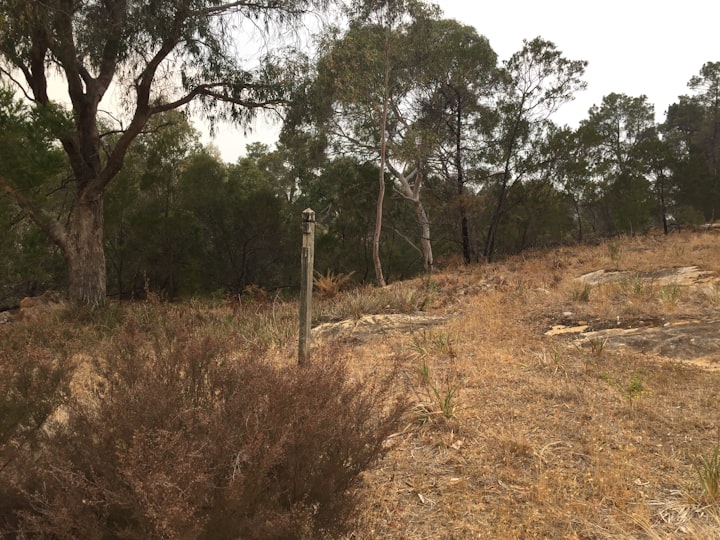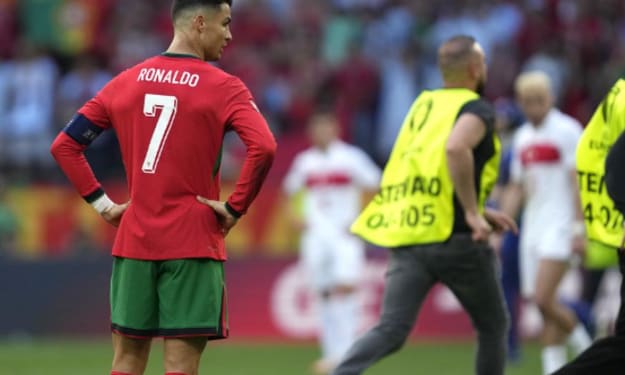How I accidentally helped kids learn to get along
Apparently inclusion involves running around a muddy paddock in the rain teaching kids how to play a game. Who knew?

I am enraged by the self-serving, petty and spiteful opinions of those beneficiaries of privilege who belittle equity. It’s as if they fear that another person’s gain must correlate to their own loss. There must be a term to describe the utterly abhorrent evil they commit when, with false platitudes and twisted words, they would steal the very humanity from others, and in doing so, seek to exclude them from opportunity or even excommunicate them from society entirely. Because they’re “different”.
There is no doubt I have benefited myself from a privileged life because privilege is not just the presence of opportunity but also the absence of barriers. I’ve never been discriminated against for the colour of my skin, never ridiculed for the shape of my eyes or face, never suffered just for my name’s heritage. But first-hand experience of suffering should not, and must not, be a prerequisite for knowing and feeling empathy and, by extension, desiring equality and equity.
So in the words of Martin Luther King Jr, I still have a dream, and my dream is this: that everyone enjoy the privilege I have. I want the equity and equality of inclusion for everyone, in all facets of life, not merely the obvious measures of earning capacity, wealth and life expectancy. I want equality of existence.
Equality is never achieved by destruction, at least not beyond a brief and temporary sharing of misery. Tearing down of the existing wealthy elites and their privileged cadres won’t help – though it wouldn’t hurt if some of them had to share a little more – it won’t deliver sustained equity. Equity will only be achieved by everyday people making time to include other everyday people, every day.
And so I’m going to talk about Rugby Union. Yes I could talk about teaching, about how I have volunteered my time generally, then progressed to studying teaching, so now I can do supply teaching specifically in lower socio-economic schools. Yes I could talk about the respite foster caring I do, after all, kids in the foster care system need all the inclusion we can give them. Instead, I’m going to tell you why I volunteer to coach junior Rugby Union.
What’s great about Rugby Union? After being called for a penalty, the international level South African player, Lood de Jager, who is 6’9” and 275 pounds, turned to the referee and said, “Sorry sir.”
Rugby Union has been characterized as a thugs’ game played by gentlemen, but this is an oversimplification. It is rather a game of intense physicality and barely controlled chaos channelled into a single-minded purpose. On first viewing a new spectator could be forgiven for thinking it an incomprehensible mess. And unless the referee manages the game well, that’s exactly what it is. As a consequence there must be absolute respect for the referee, not because he is in a position of power, but because he is in a position of responsibility. The game demands that every single player demonstrate the best aspects of self-discipline, self-control and self-respect.
The impact of learning these basic values is hard to overstate. I have coached kids who were “troubled” (Allegedly. Personally I just thought they were kids.), and they fit straight in. Those kids needed an outlet and the intensity of Rugby is great for that. Then it’s overlaid with clear messages around how we behave towards each other, how we behave towards ourselves, and the importance of self-restraint. And with a group around them who all support those ideas, they quickly adopt them.
What’s great about Rugby Union? “The laws provide players of different physiques, skills, genders and ages with the opportunity to participate at their levels of ability…” (World Rugby Playing Charter).
All sports claim they are a game for everybody, and that is true to an extent, technically anyone can play. Rugby Union is also a sport for everybody, but more, it is also a sport for Every Body. The specialization in the positions means it not only accepts, but actually requires people of different body shapes and builds. There are fifteen positions in a team, and every one of them has a unique set of requirements.
The most obvious example is the prop. Think of the young girl or boy who’s pretty short, and really stocky – even a bit fat. This child has poor hand-eye coordination, can’t run fast, can’t kick a ball to save themselves; in fact about all they can do is push hard because of their size. They’d be picked last in any other sport and ignored when they are on the field, possibly even derided for their body. Well I need that kid on my team. And not as a substitute, but as one of the first picked players, because those are the attributes of the two props; they wear the numbers 1 and 3. They anchor my scrum and are essential to any team’s chances of success.
That is precisely what I saw happen. A young islander boy – big, overweight and badly bullied because of it – arrived at the club. He was so shy he hid behind his dad.
“This is our last chance with this kid,” I was told, “he’s tried half a dozen sports and been bullied out of them all.” I slotted him straight into prop and he never looked back. He was included in the team, not to be nice, but because the team really needed him. You can imagine how his self-esteem blossomed, and from that the anxiety dropped away, and from that the over-eating decreased. He’s still a big boy, probably always will be, but he’s a lot healthier than he was, because he was genuinely included.
There’s a role for every kid, yes there really is.
The tall lanky kid, the one who looks a bit like a giraffe when he or she runs, limbs flailing everywhere but not moving real fast: we need them for second row and to jump in the line-outs. [Line-outs are the method of restart when a ball goes out. Players from each team form opposing lines normal to the boundary-line, with a tunnel between them. A player throws the ball in down the middle of the tunnel and players jump for it.]
The shorter stocky kid, like an undersized prop: hooker.
The big brawny kid who loves to work: number eight.
The small kid who can pass and kick well and plays chess: halfback, they need brains.
The kid who looks like he has the ball on a string, can do anything with it, but a bit small: fly-half.
All-round athletes: centres and flankers.
Speedsters: wings.
And the kid who loves to catch and kick and tackles like a lion: fullback.
I love that rugby needs every one of these kids. There is no way any one person can excel at every position, and the team needs every position. It is impossible to play the game without out all of those players. At higher grades you must have certain positions with reserve players registered to play them for the game. The nature of the laws of the game demand this inclusion.
Those requirements, the dependence on every player, shows that equity and inclusion are not a zero sum game. Including one player does not exclude another but in fact enhances the whole team, creating a whole greater than the sum of its parts. Once a team steps onto the field, all divisions of race, gender, body shape, and the myriad petty ways we discriminate day to day; they all vanish. They have to vanish. Any team that consistently excludes others will inevitably lose to those teams that are wholly inclusive.
What do I love about rugby? Referee, Nigel Owens, on an especially poor throw at the lineout – the ball must be thrown in straight down the middle, this one curved several metres to the right:
“I’m straighter than that throw!”
Nigel Owens was one of the top referees in international rugby, he retired from top level matches in 2020 having overseen more than 100 international matches in his career – a huge number. He came out as gay in 2007 and said that it was, “harder than refereeing a world cup final between New Zealand and Australia.”
I’d like to say that homophobia is entirely absent from rugby. Of course it’s not, there are still pockets of benighted people who don’t get it. However, at the global scale, acceptance and inclusion and support are sufficient for an openly gay man to reach the highest echelons in the sport. This is what I want kids to see, this is what I want them to learn.
For kids coming into the sport, they need role models that diverge from the stereotypical heteronormative male, and the misconstrued imagery of gays. As juniors and young teens they are just entering the confusion of adolescence and they’re seeing a gay man rightly lauded for his excellent work. And they’re seeing the acceptance and inclusion of that sexuality in the most genuine of ways: yeah he’s gay. So what. I believe this kind of inclusion is powerful because it is implicit, it’s just the way we are, why should the world be any different? Imagine a young kid struggling to deal with it all, and hey, look there’s this bloke who is openly gay, and everyone respects him and no one has a problem with it. Yeah, you’re gonna be ok too. What a fantastic message.
If I want kids to experience the privilege I’ve had in life and the inclusion I’ve had because I was born a straight, white, male in Western society, then I need to find ways to include them. I can think of few day-to-day activities I can undertake that are more effective than simply showing up to coach kids in the most inclusive sport I can find: boys, girls, any race, any creed, I'll coach them. As one small man in a sea of humanity I’m not going to lift the whole of society, but maybe I can show a group of kids what it means to be inclusive, and what it means to be included.
It means giving up my evenings once a week to go and train boys and girls in skills and fitness and technique. It means talking with parents about how their child actually does have to take two weeks off because I’m worried about an injury – no they’re not fine, they need a break. It means finding people to play, and organizing other people’s kids, and giving lifts, and checking they have mouth-guards, and taping up socks and boots with electrical tape, and lifting them up when they lose, and reminding them about respect when they win. It means getting my arse out of bed on a freezing Winter’s morning, in the dark, so I can go and referee; running around on a muddy pitch in the drizzle while a bunch of 12 year-olds chase a weird shaped ball. It means showing those kids that I’ll be there, and that I want them to be there, whoever they are and wherever they’re from; that they’re included and they will always be included and respected, no matter what. That is inclusion and that's what I'm doing.
About the Creator
Michael Darvall
Quietly getting on with life and hopefully writing something worth reading occasionally.
Enjoyed the story? Support the Creator.
Subscribe for free to receive all their stories in your feed. You could also pledge your support or give them a one-off tip, letting them know you appreciate their work.






Comments
There are no comments for this story
Be the first to respond and start the conversation.